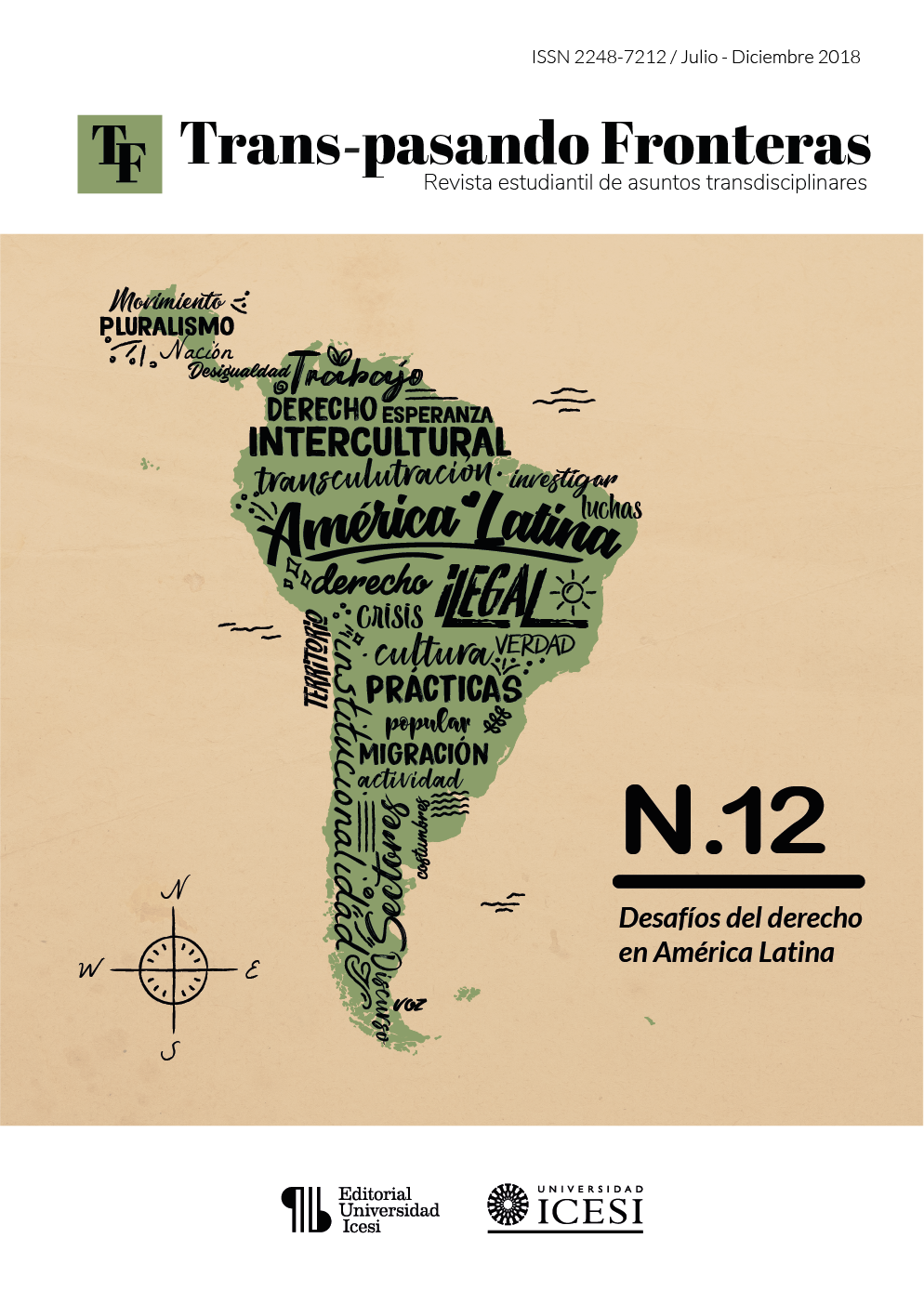Colonialidad del saber jurídico y derecho neo-constitucional en Colombia
DOI:
https://doi.org/10.18046/retf.i12.2900Abstract
In Colombia, the argumentative, rational interpretation and correction of the law heories have been consolidated as dominant readings for the judicial labor. The juridical hegemonic theory promotes the creation of a juridical exclusive, functional culture to a restricted knowledge. The meanings and words of the juridical language turn into tools of control on the social groups that they do not know. The jurisprudence of the Constitutional Colombian Court (devout to the European and American constitutionalism) is incomprehensible for the non-attorneys, which generates an opaqueness of the right, a concealment of the functioning and uses of the dominant above-mentioned speech. The present text affirms that the dogmatic and western constitutionalism has turned into a discursive centrality into Colombia, which generates a coloniality of the juridical knowledge. I will assume language as tool of power and his relation with the knowledge inherited from the eurocentral modernity, we will indicate the fundamental elements of the neoconstitucionalism and his application in Colombia, I will realize critical comments opposite to his postulates on the speech and the juridical culture and will raise the consequences of a juridical univocal speech; what it will lead to consider the necessary decolonization of juridical knowledge and the construction of a juridical pluri-popular education opposite to a juridical hermetic field
Downloads
Downloads
Published
Issue
Section
License
Trans-pasando Fronteras provides immediate open access to its content on the principle that making research freely available to the public supports a greater global exchange of knowledge.
© Authors hold copyright and publishing rights without restrictions but in accordance with the CC license.
All the material in this publication can be reproduced as long as reference is made to title, author and institutional source.







